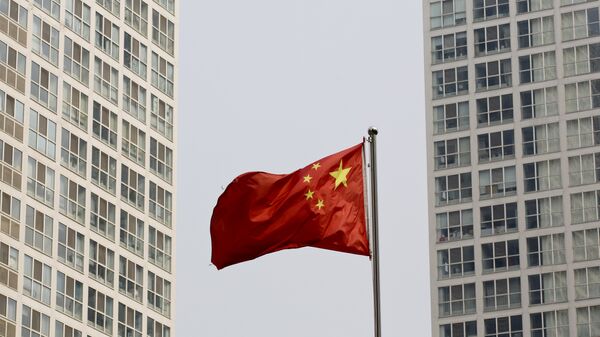Kristian Rouz – Dramatic change in US economic policies under the Trump administration is poised to overhaul the entire system of international trade, with other major economies facing the increasing investment appeal of the US. Mainland China is exposed to global trade and capital flows most of which are due to its excessive reliance of exports in manufactured goods.
READ MORE: China May Launch Yuan-Denominated Oil Futures in Shanghai by 2018
The overhaul of the US corporate tax code and the rising Federal Reserve borrowing costs might trigger a larger investment flight from mainland China – an issue that has been plaguing the world’s second-largest economy for years.
This as the Chinese regulators have made progress liberalizing the country’s domestic market for foreign investment over the past several years, hoping to boost domestic consumption.
China’s corporate tax level is 45 percent, whilst in the US it will be just north of 20 percent effective January 1st.
Meanwhile, Chinese regulators firmly oppose what they see as an unnecessary investment in foreign markets.
"Now, the question is, of course, how do Chinese investors and Chinese firms view this (US fiscal reform). Maybe, they view this as a great opportunity. Obviously, because corporate taxes are very high in China," Jacob Kirkegaard of the Washington-based Peterson Institute of International Economics said.
Mainland China has recently tightened its capital controls and stepped up its crackdown on the illicit offshoring of capital. These measures, however, are not enough, and in order to offset the risks associated with the US tax reform, Beijing might resort to its proven method of boosting its investment appeal – another devaluation of the renminbi.
At the same time, the US administration does not seem to welcome the projected influx of foreign investment, as President Trump clearly stated his goal as reshoring US capital held overseas.
"More Chinese firms will then look to invest in the United States, but keep in mind that the Trump administration is also at the same time going through a significant, a potentially significant tightening of foreign investment rules … which will clearly make it more difficult for many Chinese firms to at least takeover or buy American companies," Kirkegaard said.
According to a report by the Institute of International Finance (IIF), Mainland China’s net capital outflows hit their record-high last year, at $725 billion as compared to just $160 billion back in 2014.
"If US-based multinational corporations start to repatriate their profits from China, outflows could worsen further in 2017," the IIF said
These outflows are poised to accelerate next year as well, as US companies are expected to pull their money from China – let alone the Chinese companies seeking to enter the growth US market.
This is making the global trade system a more competitive environment for China, whereas only several years ago the mainland hardly had a credible competitor when it comes to manufactured consumer goods.
Additionally, the US dollar has devalued 12 percent against a basket of its major peers this year, despite tighter Fed policies. This stirs up concern of a looming devaluation of China’s renminbi – in spite of Beijing’s stated commitment to keeping its FX rate stable.
READ MORE: US Global Decline Will Be ‘Abrupt’ as China Surges — Historian
China’s narrowing trade surplus is also expected to add downward pressure to the renminbi’s FX rate and exports, the driving force behind China’s GDP. This could cause more trouble for Beijing.
Further exacerbating these projections, the tax reform is just the first part of President Trump’s fiscal overhaul, with a massive $1-trillion infrastructure package to follow sometime next year. Additional budget spending would further boost US investment appeal, and other major economies will have to respond with similar measures at home.






